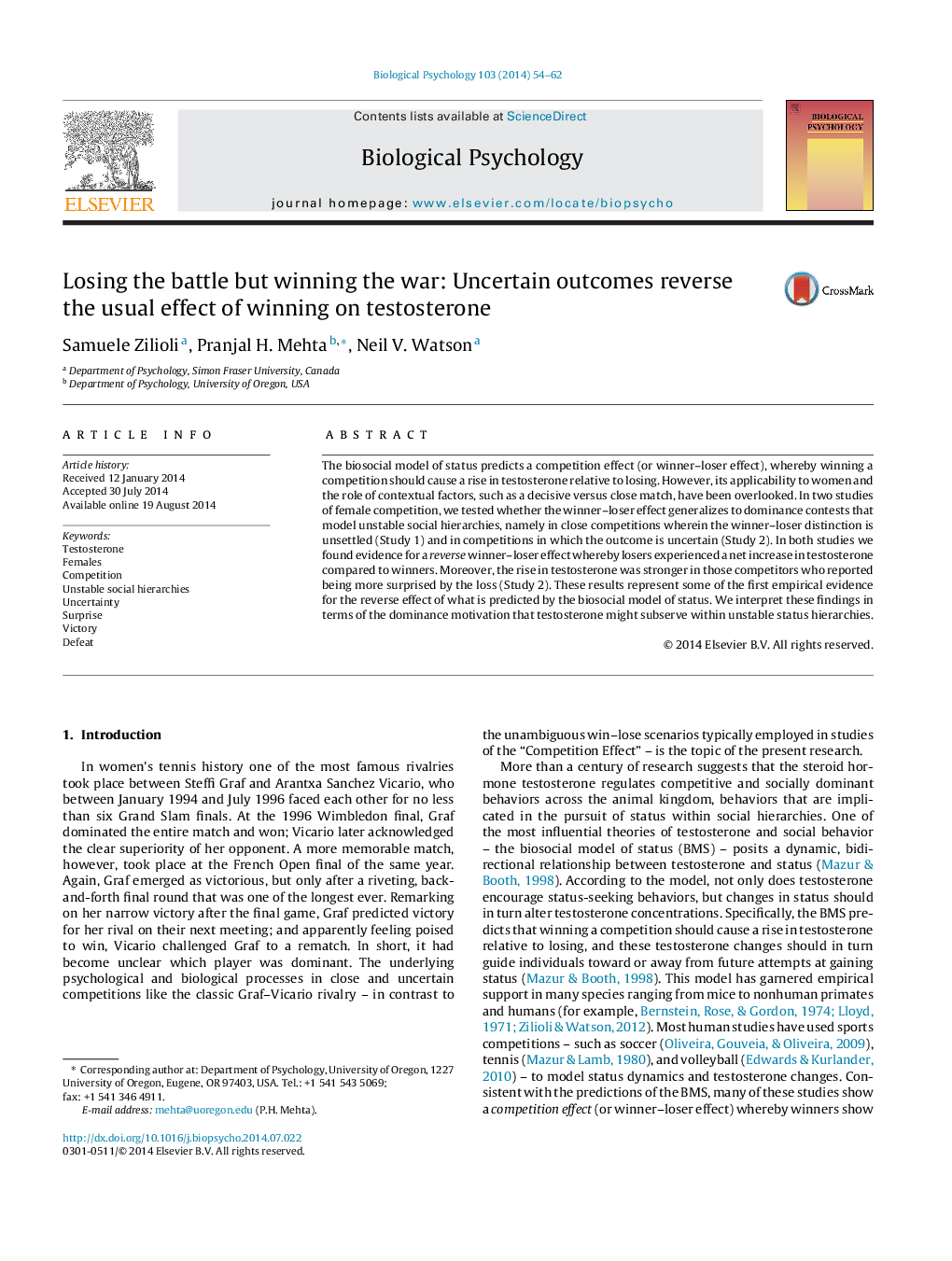| Article ID | Journal | Published Year | Pages | File Type |
|---|---|---|---|---|
| 7278703 | Biological Psychology | 2014 | 9 Pages |
Abstract
The biosocial model of status predicts a competition effect (or winner-loser effect), whereby winning a competition should cause a rise in testosterone relative to losing. However, its applicability to women and the role of contextual factors, such as a decisive versus close match, have been overlooked. In two studies of female competition, we tested whether the winner-loser effect generalizes to dominance contests that model unstable social hierarchies, namely in close competitions wherein the winner-loser distinction is unsettled (Study 1) and in competitions in which the outcome is uncertain (Study 2). In both studies we found evidence for a reverse winner-loser effect whereby losers experienced a net increase in testosterone compared to winners. Moreover, the rise in testosterone was stronger in those competitors who reported being more surprised by the loss (Study 2). These results represent some of the first empirical evidence for the reverse effect of what is predicted by the biosocial model of status. We interpret these findings in terms of the dominance motivation that testosterone might subserve within unstable status hierarchies.
Related Topics
Life Sciences
Neuroscience
Behavioral Neuroscience
Authors
Samuele Zilioli, Pranjal H. Mehta, Neil V. Watson,
